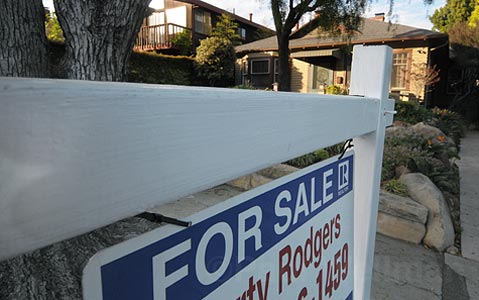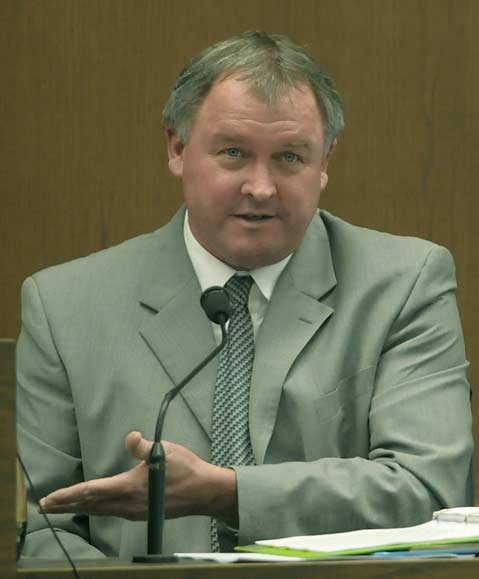County Re-assesses Property Taxes
Nearly 20,000 Properties Get Reduced Rates; County May See First Decrease Ever in 2010

If you’re one of the nearly 20,000 Santa Barbara County property owners who bought your house in boom times only to see the value sink with the recession, it’s likely that your property taxes have already been reduced, courtesy of the county’s assessor Joe Holland. If you’re still pretty sure that your assessed property value remains too high, Holland is encouraging you to give him a call, and his office will look into it for free.
“We try and identify those properties that have an assessment above market value,” said Holland. “Unilaterally, if they bought property at the height of the market, we may have lowered the assessment without them even requesting it.” Of the 128,000 total parcels in the county, Holland said that happened to 19,778, and they were notified by mail in July 2009. Reductions also occurred on 175 properties in 2006, 7,000 properties in 2007, and 15,000 in 2008.

Despite the expansive efforts, however, Holland realizes that they may have missed some properties. “If someone feels that the value of their house is less than the current assessment value, they can call us or go on the Web site, fill out a form, and we’d do a review of the assessment at no charge,” explained Holland. He emphasized that it’s a free service because, about one year ago, there were organizations sending out letters asking people to pay them $179 to process the re-assessment request. “The forms looked governmental,” said Holland, “and that’s not okay, because we’ll do it for free.”
The downward trend is pretty uncommon in the contemporary history of California, where skyrocketing values prompted voters in 1978 to pass Proposition 13, which restricts property tax hikes to a maximum of 2 percent each year based on the purchase price. Prop. 13, as it’s known to those who both praise and vilify the anti-tax measure, was the result of fears that the Golden State’s rising property values were starting to price homeowners out of their homes, simply because they could not afford the property tax. While Holland’s office will continue to re-assess properties as the market stabilizes and, presumably, begins to climb again — the nearly 20,000 properties from 2009, for instance, are automatically being re-assessed in 2010 — those assessments will still never go above that 2 percent annual rise based on the original purchase price.
The 2009 reductions effectively lowered the county’s assessed value by $3.5 billion, dropping it to about $60 billion total. As dictated by Prop. 13, half of the taxes collected from that amount are spent directly on local schools; a little more than 25 percent goes straight to the county, and then the cities pick up the remaining percentages. “Local property taxes do have an impact on local government services,” said Holland. “The cities are having challenges and the county is having challenges, and a lot of it is due to property taxes.” The county is particularly hard hit, said Holland, because nearly 90 percent of its discretionary funding comes straight from property taxes.
When asked why his office was contributing to the budget crunch by voluntarily lowering these assessments, Holland laughed. “That’s my job,” he said. “And it’s only fair.” But while lower taxes might seem like a blessing to a cash-strapped homeowner, the situation is really a catch-22. “As a property owner, you like to see that you don’t have to pay as much in property taxes, but what’s really happened is that property owners have lost $3.5 billion,” explained Holland. “The good news is that property taxes are going down. The bad news is that the value of your property has gone down.”
The current recession is not the first time that the county has re-assessed property values. After a big value bump in the 1980s, some new homeowners in the early 1990s found themselves in the same situation as new homeowners today. Back then, the reductions were considerably less, said Holland, but a similar number of properties were affected. That slide took about five or so years to pull out of, recalled Holland, who believes that Santa Barbara County’s present property values have already reached the depths of the market. “My best estimate is that we’re dragging along the bottom right now, and we’re probably going to see some increases in property values next year,” said Holland. “The assessed value for the county will begin to go up.”
But before that happens, Holland warned that, in 2010, the county’s overall assessed value might go down for the first time since Prop. 13 was passed. That’s due, in part, to the dropping values, but also because new residential construction and existing home sales — the only two instances that allow property taxes to jump to a new base level — remain slow. On top of that, the state’s Department of Finance declared that there is deflation this year, so all property owners will be seeing a drop in their taxes. “There is going to be a slight decrease in assessment,” said Holland, noting that it will be miniscule, something like a tenth of a percent. “That’s new. That’s never happened under Prop. 13.”
Despite all of this, however, the county remains in decent shape, considering that other regions have seen property values drop as drastically as 15 percent. Holland explained, “Santa Barbara County, compared to other counties, is actually doing very well.”



